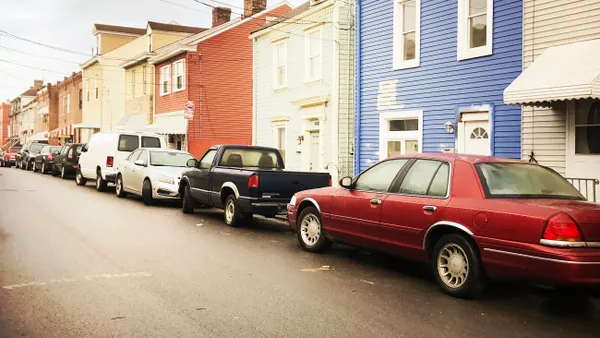Dive Brief:
- U.S. Sens. John Thune, R-SD, and Brian Schatz, D-HI, reintroduced a bill that would reduce barriers to permitting and installing small cells to support 5G deployment.
- The Streamlining the Rapid Evolution And Modernization of Leading-edge Infrastructure Necessary to Enhance (STREAMLINE) Small Cell Deployment Act would set a 60-day deadline for state and local agencies to respond to requests to collocate equipment, and a 90-day deadline for all other requests.
- The bill would also update the Communications Act to require that all fees be publicly disclosed, competitively neutral, technologically neutral and based on actual and direct costs.
Dive Insight:
In a statement, Thune, the former chairman of the Senate Commerce Committee, said the bill would "put the United States in a position to win the race to 5G, something that could potentially accelerate economic growth and provide new opportunities for businesses and communities throughout the country." The bipartisan bill was previously introduced in 2018, but never got a hearing.
Broader 5G deployment will require telecoms to install hundreds of small cells, which broadcast the relatively short, high-frequency signals that cell towers can’t. A recent report from Analysys Mason released by CTIA found that the U.S. was on par with China in terms of 5G preparedness, but trailed the country in small cell deployment, in line with other findings from the organization.
To speed up small cell installation, industry groups and the federal government have said it may be necessary to lift some regulatory roadblocks. At an October White House summit on 5G, National Economic Council director Larry Kudlow said the White House favors "the private enterprise, free market path," letting companies lead the way. The Federal Communications Commission (FCC) last fall passed a controversial rule that would limit fees from local governments and streamline approval, prompting outcries from county and city government officials who say the move was an overreach.
Although 5G will help cities deploy technology like connected vehicles and smart grids, the infrastructure deployment has prompted concerns from local governments. Besides wanting fees to fully cover the cost of installing the small cells on existing utility poles, residents have raised health concerns about the signals and have complained that they are ugly. This spring, a California court said San Francisco had the power to reject small cell applications for aesthetic reasons.









